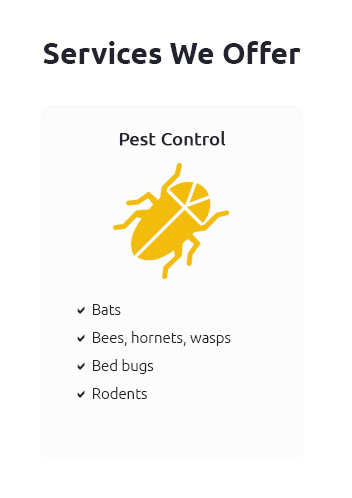 |
|
||||||
 |
 |
 |
 |
 |
 |
 |
 |
 |
 |
 |
 |
 |
Pest Control in Orchard Park: Common Mistakes to Avoid and Tips for SuccessIn the picturesque setting of Orchard Park, maintaining a thriving garden or orchard can be both a joy and a challenge. Whether you're nurturing a few fruit trees or an expansive garden, effective pest control is crucial for ensuring healthy growth and bountiful harvests. In this article, we delve into the nuances of pest management, highlighting common mistakes to avoid, and providing insights into the best practices for success. One of the most prevalent errors in pest control is the over-reliance on chemical pesticides. While these solutions may offer quick fixes, their long-term effects can be detrimental to both the environment and beneficial insect populations. A more sustainable approach involves integrated pest management (IPM), which emphasizes the use of biological controls and cultural practices. For instance, introducing natural predators such as ladybugs and parasitic wasps can help maintain a balanced ecosystem in your orchard. Additionally, implementing crop rotation and ensuring proper plant spacing can significantly reduce pest habitats. Another mistake often made by gardeners is the misidentification of pests. It's crucial to correctly identify the insects in your orchard to apply the appropriate treatment. Misidentifying a pest can lead to ineffective solutions and wasted resources. Taking the time to study pest habits and life cycles can aid in accurate identification and more targeted control methods. Ignoring early signs of infestation is yet another pitfall. Regular monitoring and early intervention can prevent minor pest issues from escalating into full-blown infestations. Conduct regular inspections of your orchard, paying close attention to leaves, stems, and fruits for any signs of damage or unusual activity. Moreover, neglecting soil health can indirectly contribute to pest problems. Healthy soil supports robust plant growth, which in turn enhances plants' natural defenses against pests. Incorporating organic matter, practicing proper irrigation, and avoiding soil compaction are vital steps in maintaining soil vitality. In conclusion, effective pest control in Orchard Park requires a holistic and informed approach. By avoiding common mistakes such as over-reliance on chemicals, misidentification of pests, ignoring early signs of infestation, and neglecting soil health, gardeners can foster a healthy and productive environment. By embracing sustainable practices and staying vigilant, you can enjoy the fruits of your labor while contributing positively to the local ecosystem. FAQs on Pest Control in Orchard Park
https://www.yelp.com/search?cflt=pest_control&find_loc=Orchard+Park%2C+NY+14127
Best Pest Control in Orchard Park, NY - Eco Serve Pest Services, Cummings Pest Solutions, Suburban Pest Control, Orchard Park Pest Control, ... https://www.ecoservepest.com/pest-control-orchard-park
At Eco Serve Pest Services, we're here to give you fast, affordable pest control in Orchard Parkno mess, hassle, or long waits and playing phone tag. Our ... https://fox-pest.com/locations/new-york/orchard-park/
Fox Pest Control provides reliable pest management services in Orchard Park, NY. Trust our exterminators to eliminate pests and protect your property ...
|



